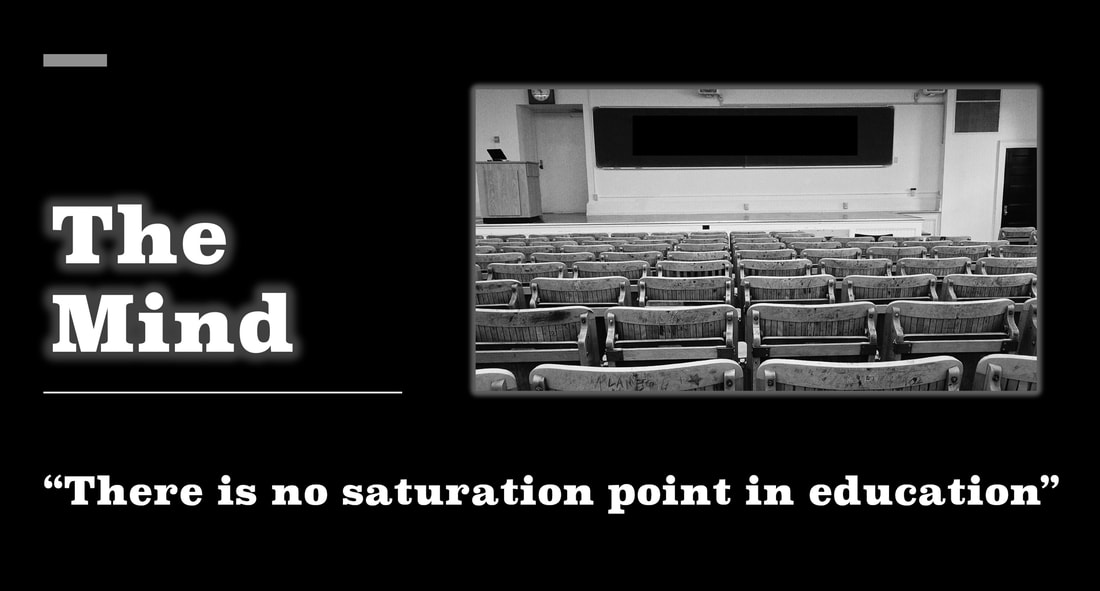The Mind: Man's Most Valuable Possession
Thomas J. Watson's Perspective on Public Education
Watson Sr.'s favorite phrase when talking about education was, "There is no saturation point in education." He exemplified this for most of his life as he practiced the continual study of business, science and the arts. His THINK Magazine published an eclectic collection of writings from philosophers, businessmen, poets, professors, generals, archeologists, astronomers, humanists, explorers, Nobel prize winners, college presidents, reporters, publishers and even ornithologists. Some of the articles he personally published.
He was outspoken on the hidden value of the human mind.
He was outspoken on the hidden value of the human mind.
Thomas J. Watson Sr.'s "The Mind" from 1939
|
The per capita cost of education in the United States in 1937 was approximately $19.00. In 1870 it was only $1.64. In 1870 there were only 80,000 students in our high schools. In 1937 there were more than six million.
Why this amazing development of public education in this country? Why this gratifying increase in the cost of teaching youthful minds? The answer is that mind is the most valuable possession of man. His sight, his hearing, the use of his limbs and all that good health represents, he may lose, yet retain his position in life; but not his mind. Man's mind may well be said to be his all; for without it everything else that he possesses is as nothing. The minds of its future citizens are a major concern of every nation. What we do with our minds may seem to be strictly our own business. Actually, it is the business of all with whom we come in contact. And whether we know it or not, all with whom we converse in the course of the day make it their business to examine our minds.
|
Read about THINK Magazine
|
Our family and friends do so because their happiness and welfare are both affected by our mental strength or weakness. Those with whom we come into daily business or social contact do so from various other motives. All our fellow citizens have a vital interest in our minds because upon the soundness of our combined judgment depends the future of all of us.
What we do with our minds should be our daily, hourly concern. If we waste or neglect our thinking processes we are merely motive power for a treadmill that never can get us anywhere. If we use our minds actively and strive to develop them daily in ways that are creative of self-respect, we progress steadily toward new goals.
Defined as "the intellectual or intelligent power in man, the power that conceives, judges, reasons, wills, imagines, remembers"—mind is also the voice of the soul. Its highest accomplishments are inevitably spiritual, and to quote Ralph Waldo Emerson: ''The unstable estimates of men crowd to him whose mind is filled with truth".
What we do with our minds should be our daily, hourly concern. If we waste or neglect our thinking processes we are merely motive power for a treadmill that never can get us anywhere. If we use our minds actively and strive to develop them daily in ways that are creative of self-respect, we progress steadily toward new goals.
Defined as "the intellectual or intelligent power in man, the power that conceives, judges, reasons, wills, imagines, remembers"—mind is also the voice of the soul. Its highest accomplishments are inevitably spiritual, and to quote Ralph Waldo Emerson: ''The unstable estimates of men crowd to him whose mind is filled with truth".
Thomas J. Watson Sr., "The Mind"
Thomas J. Watson Sr. Addressing Colgate University Graduates
I want to be counted as one industrialist in this country, who is willing to pay more taxes to increase the average of $1,430 annual salary to those who are teaching our young people, because the work they are doing is what we have to depend on for the development of our civilization.
Thomas J. Watson Sr., Jamestown Evening Journal, June 15, 1936

